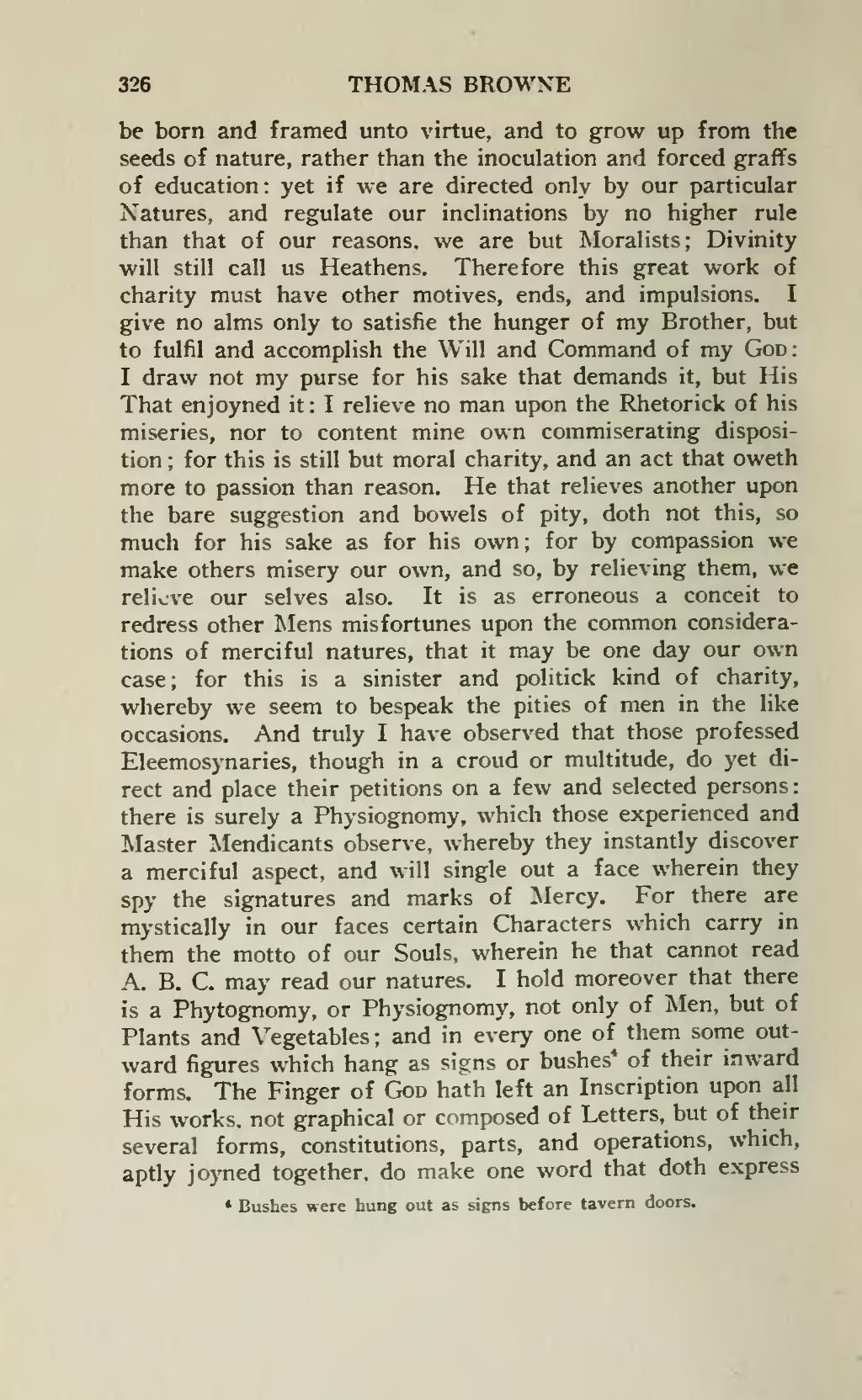be born and framed unto virtue, and to grow up from the seeds of nature, rather than the inoculation and forced graffs of education: yet if we are directed only by our particular Natures, and regulate our inclinations by no higher rule than that of our reasons, we are but Moralists; Divinity will still call us Heathens. Therefore this great work of charity must have other motives, ends, and impulsions. I give no alms only to satisfie the hunger of my Brother, but to fulfil and accomplish the Will and Command of my God: I draw not my purse for his sake that demands it, but His That enjoyned it: I relieve no man upon the Rhetorick of his miseries, nor to content mine own commiserating disposition; for this is still but moral charity, and an act that oweth more to passion than reason. He that relieves another upon the bare suggestion and bowels of pity, doth not this, so much for his sake as for his own; for by compassion we make others misery our own, and so, by relieving them, we relieve our selves also. It is as erroneous a conceit to redress other Mens misfortunes upon the common considerations of merciful natures, that it may be one day our own case; for this is a sinister and politick kind of charity, whereby we seem to bespeak the pities of men in the like occasions. And truly I have observed that those professed Eleemosynaries, though in a croud or multitude, do yet direct and place their petitions on a few and selected persons: there is surely a Physiognomy, which those experienced and Master Mendicants observe, whereby they instantly discover a merciful aspect, and will single out a face wherein they spy the signatures and marks of Mercy. For there are mystically in our faces certain Characters which carry in them the motto of our Souls, wherein he that cannot read A. B. C. may read our natures. I hold moreover that there is a Phytognomy, or Physiognomy, not only of Men, but of Plants and Vegetables: and in every one of them some outward figures which hang as signs or bushes[1] of their inward forms. The Finger of God hath left an Inscription upon all His works, not graphical or composed of Letters, but of their several forms, constitutions, parts, and operations, which, aptly joyned together, do make one word that doth express
- ↑ Bushes were hung out as signs before tavern doors.
